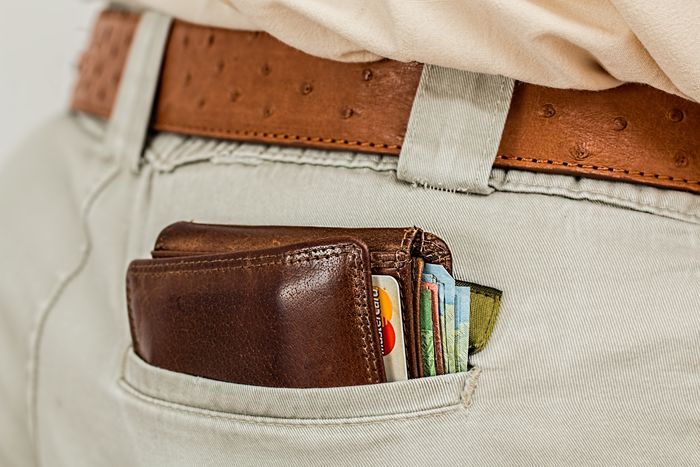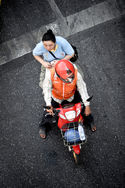What is the current exchange rate?
The currency used in Indonesia is the Rupiah. There are currently about 17,000Rp to 1 GBP, 12,500 to 1 USD and 14,500 to 1 EUR. For today's exchange rate visit xe.com.
Is Indonesia an expensive country to travel around?
No. With careful budgetting, it is possible to live on less that $10 a day. For more comfortable budget travelling it is probably best to plan about $20 a day. For luxury items prices go up very rapidly meaning they are comparatively more expensive than in western countries. There are some examples of typical prices goods in the introduction section.
Will I need to bring Indonesian currency to the country? What currency should I bring? Are there many ATM's around?
There are plenty of ATM's and money changers at the airport on arrival so bringing in Rupiah is not really necessary. If do wish to change money before you arrive be aware that the rates will not be as good as those you will get in Indonesia so it is probably worth changing as little as possible. US dollars are the most useful foreign currency to bring as they are the most widely accepted currency at money changers (especially in non-touristy areas).
ATM's are everywhere in Jakarta, and widespread throughout Indonesia. Cirrus/Maestro seems to be the most prevalent and is the best one to bring, though Plus cards would also be fine. You may want to notify your bank before leaving home, as some will automatically cancel your card after withdrawals from exotic destinations as a fraud prevention method. Exchange rates are favourable if you get money out this way, but there seems to be a transaction limit of 500,000 – 1 million Rp (depending on the bank / card / ATM - you may not be able to get this much out). Some of the more remote areas of the archipelago have few or no ATM's so it is worth planning your expenditure to ensure you have enough money to survive in these areas.
Traveller's cheques are widely accepted in tourist/upmarket areas and can be expensive to change. Make sure you have currency when leaving these areas however, as you will be highly unlikely to be able use them in rural areas.
What types of credit card are accepted?
Most major credit cards are accepted with Visa and MasterCard being the most widely so. AmEx is also accepted in many places, but will not be quite as useful as the other two types. Credit cards are only really accepted in expensive hotels, shops or restaurants or for large purchases (e.g. PADI diving courses). Cash advances can be obtained at most ATM's but these tend to incur a relatively large fee. Check with your card issuer before travelling.
Is it easy to get a casual job in Indonesia?
No. For a country not able to sustain enough employment for the local population, casual work will not go to westerners. Large amounts of work seems to be individual or family enterprises which have no room or need for outside workers.
Casual jobs may be easier to obtain in very touristy areas like Kuta but the money that you will earn for a hard days work will amount to very little. Teaching English is a potential job option, but is difficult to organise once in the country. If you were planning on doing so, it would be better to have it set up before you arrive.
I need to make a money transfer to an Indonesian bank account. What is the best way to do this?
Your best bet is to avoid making such a payment via a normal bank transfer. It works out significantly cheaper, and often much quicker, to use the services of TransferWise to make such payments. TransferWise uses a separate peer-to-peer network to arrange the exchange and international payment and its commission is often only about 10% of what a normal bank would charge for the same transaction.
Will I need to tip? How much is usual?
Tipping in standard Indonesian life is not expected or required. Having said this however, taxi fares should be rounded up to the nearest 1,000Rp and if you get people to carry your bag(s) around for you, they will expect a few thousand Rupiah tip. In some of the Western restaurants, a 10% tax and 7% service charge is added automatically to the bill. No other tip is needed.
How much can I bargain prices down?
This is an extremely difficult question to answer as it will depend on the goods you are buying, where you are buying them and even who is selling them to you. The general rule is that the initial price quoted is substantially more than what you could be paying. After bargaining the price can come down from about 20-60%. In some highly touristy areas, the initial price quoted may be several times the actual price of the item. Being friendly, buying more than one item, and speaking Indonesia are all good ways to get further discounts.
By western standards, Indonesia is an extremely cheap country to live or travel in. Although there is a slight step up in the prices on Bali and (to a certain extent) Lombok, these islands are still far from expensive. Even here if you were to stay in budget accommodation and eat at warung, it is possible to live on less than $10 a day. Indonesia foods and products are the least expensive but some Western items such as cheese and chocolate, are comparatively more expensive than in western countries. If you plan to include items such as these into a fairly small budget, you should look to plan around $15-20 a day. As a rough guide to the costs of staying in Indonesia, some typical prices of useful items are quoted below. The exchange rate is approximately 1 USD = 9,000 Rupiah, 1 GBP = 16,000 Rp or 1 EUR = 11,000 Rp.
Food Costs:
Indonesian meal and soft drink at Warung 8,000 Rp
Indonesian meal and soft drink at cheap tourist restaurant 15,000 Rp
Western food and soft drink at tourist orientated restaurant 15,000-35,000 Rp
McDonald'sBig Mac Meal small/large 16,000/20,000 Rp
Large Bintang beer in supermarket 10,000 Rp
Bottle of White wine in restaurant 90,000 Rp
Small/Large Bintang in tourist restaurant 9,000/15,000 Rp
Bottled Water (1.5 litre) 2,500 Rp
Mars Bar 7,000 Rp
Western Cigarettes/Indonesian Kretek 7,000/5,000 Rp
Accommodation Costs:
Cheap clean room with fan and cold water mandi 20,000-50,000 Rp
Similar room with air conditioning 50,000-80,000 Rp
Average 3* Hotel room 130,000-250,000 Rp
Average 5* Hotel room 800,000 Rp +
Travel Costs
Taxi fare 3,000 Rp per km
Becakfare 2,000 Rp per km
BemoFare 1,000 Rp per km
1 hour Economy/Aircon bus journey 4,000/7,000 Rp
12 hour Luxury overnight bus journey 130,000 Rp
8 hour Economy/Bisnis/Ekecutif train journey 35,000/65,000/160,000 Rp
30 minute public ferry trip 2,000 Rp
Shopping Costs:
CD Western/Indonesian 100,000/60,000 Rp
Cheap T-shirt 40,000 Rp
Nike Trainers 500,000 Rp
Pair of shorts 50,000 Rp
Designer Clothes 200,000 Rp +
Small wooden handicraft souvenir 30,000 Rp
Sarong 35,000 Rp
Jewellery 50,000-100,000 Rp
General Costs:
Cinema ticket Western/Indonesian film 20,000/8,000 Rp
Nightclub entrance fee (often waived for westerners) 30,000 Rp
Copy of 'Java Post' newspaper 15,000 Rp
Cheap haircut 20,000 Rp
Internet use per hour 12,000 Rp






Comments